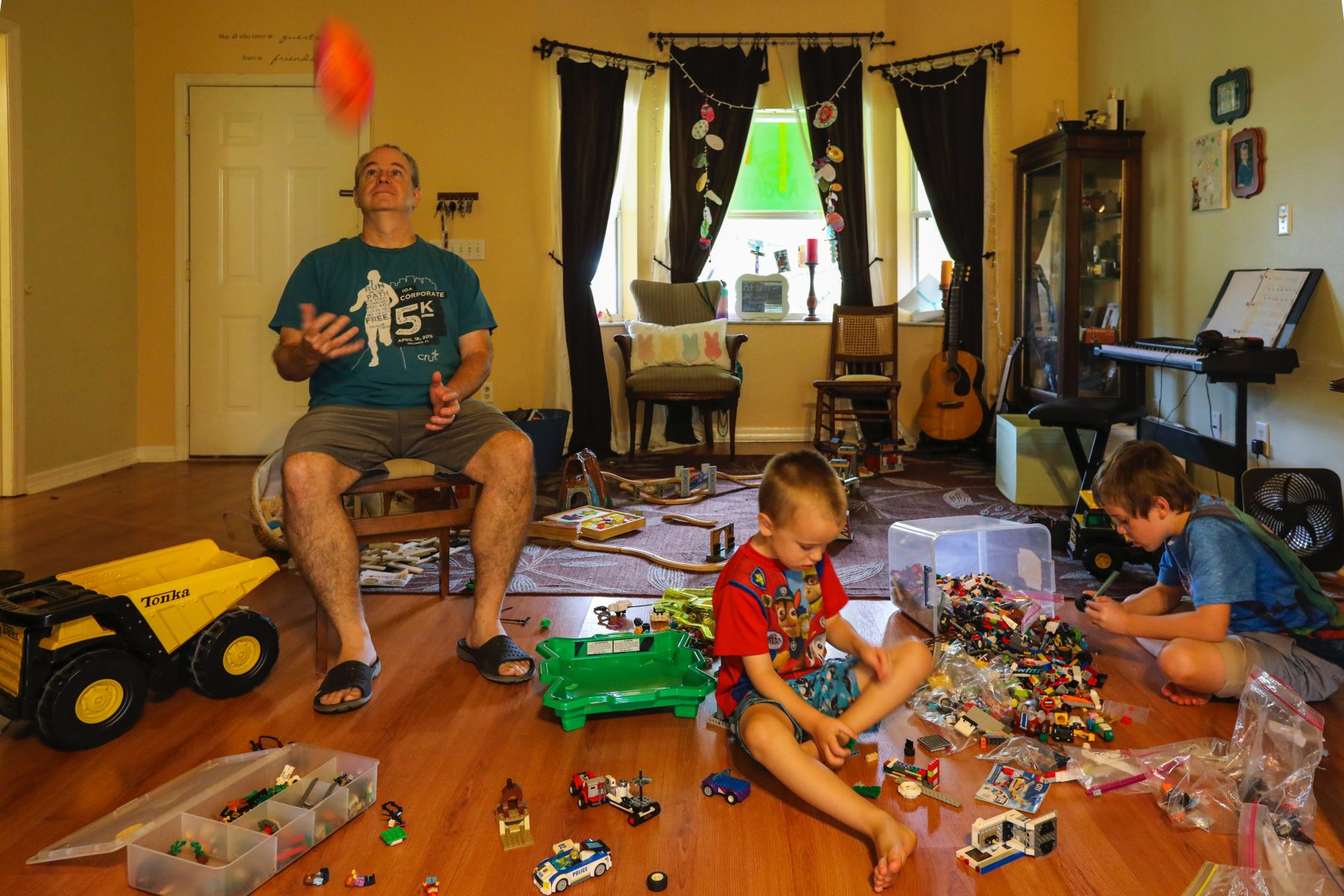We can’t ignore the long-term impact of COVID-19 on children, CFECFW says

A number of factors, as Victorian families face real material hardship as a result of COVID-19, are likely to have a long-term impact on children once the pandemic passes, the Centre for Excellence in Child and Family Welfare (CFECFW) CEO Deb Tsorbaris has said, describing this as an issue which can no longer be ignored.
Many families, she said, are finding it difficult to provide enough food for their families or stable housing. Many children are finding it difficult to learn in lockdown, with families unable to afford internet connection or reliable technology. Children with a disability are finding it difficult to access the support that they and their families rely on.
As the country experiences a time of disruption and upheaval, requiring change and adaptation to respond to challenging circumstances, those working in the child and family services sector have had to be innovative in the ways they work with families to keep children visible and safe.
Community organisations have adopted online technologies, virtual counselling and risk assessments to support and care for children.Without the safety net of school, early childhood education and care (ECEC) and other universal services, the task is made even harder, Ms Tsorbaris said.
“We know there are some children who are falling through the cracks and whose needs aren’t being met, or who are at risk of harm,” she added.
Before the pandemic, the numbers of children entering the out-of-home care system were steadily increasing at a rate of 10 per cent per year. In 2018-19, there were almost 12,000 children in care in Victoria. Recent modelling has predicted that the increasing pressures on families arising from the pandemic could see this number rise to 27,000 over the next five years.
The pandemic, she continued, has “thrown a spotlight onto current stressors and weaknesses in our service responses and on existing social and structural inequalities and disadvantages”.
“What’s clear is that we have a steadily growing group of children and families who need help. We can’t continue to accept as inevitable that an increasing number of children will be removed from their families and placed into an underfunded and already stressed care system.”
A recent CFECFW survey of the child and family services workforce found an escalation in family conflict, violence and aggression. Family separation and isolation coupled with heightened anxiety about the health and economic impact of the pandemic have led to increased reports of mental stress and illness, all of which is having significant impact on children and young people.
While Australian studies on the impacts of recession on children is limited, we know from international research on the Great Recession of 2007-10 in developed nations that child poverty rates rose, poor health outcomes associated with poverty and food insecurity increased, and there was a marked decline in family wellbeing because of loss of income, insecure work and housing stress.
The solution, Ms Tsorbaris said, is not to wait for an escalation of stressors to accumulate within families to a crisis point and then to remove children and place them into care.
“Instead, we must all accept our collective responsibility to keep children safe. This means changing our focus from a crisis response to a whole-of-family approach that works to support families to keep children safe and to access the services they need.”
Such a measure, she continued, means “making a commitment as a society to make sure that parents are not forced to choose between food for their children or paying the rent. That families can access timely medical and dental treatment for their children and can access specialists no matter where they live. And it means giving families the tools they need to make sure that their children do not fall behind in their learning because of the disruption caused by COVID-19 to education.”
“It is already clear that the pandemic and the recession it has triggered will profoundly impact our children’s future. We need to work together to develop a COVID-19 recovery plan that focuses on the needs of children and their families to make sure that no child is left behind.”
Ms Tsorbaris’ statement was originally titled This Child Protection Week, Let’s Not Ignore The Long-Term Impact Of COVID-19 On Children and may be accessed here.
National Child Protection Week runs from 6 to 12 September. For more information, please see here.
Popular

Quality
Provider
Policy
Practice
WA approved provider fined $45,000 over bush excursion incident
2025-07-01 07:00:01
by Fiona Alston

Workforce
Policy
Quality
Practice
Provider
Research
ECEC must change now, our children can’t wait for another inquiry
2025-07-02 07:47:14
by Fiona Alston

Quality
Practice
Provider
Workforce
Child left in storeroom at Sydney centre sparks concerns over supervision and trauma support
2025-06-30 09:09:58
by Fiona Alston













